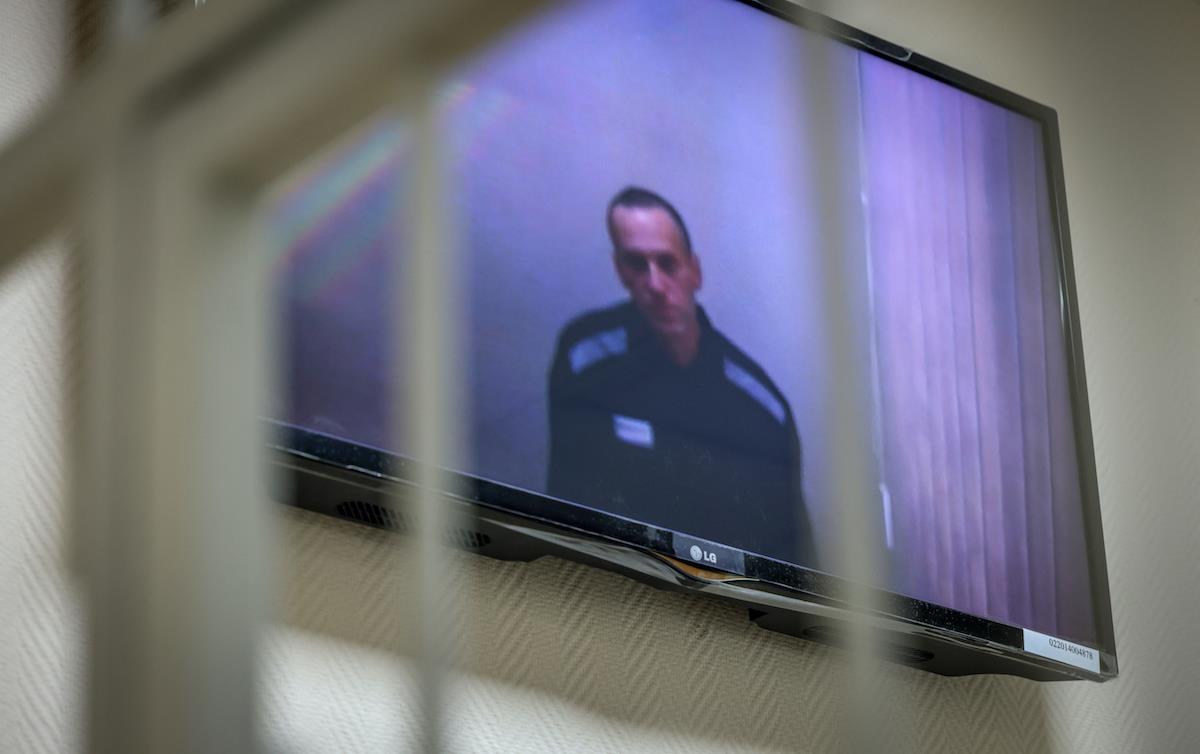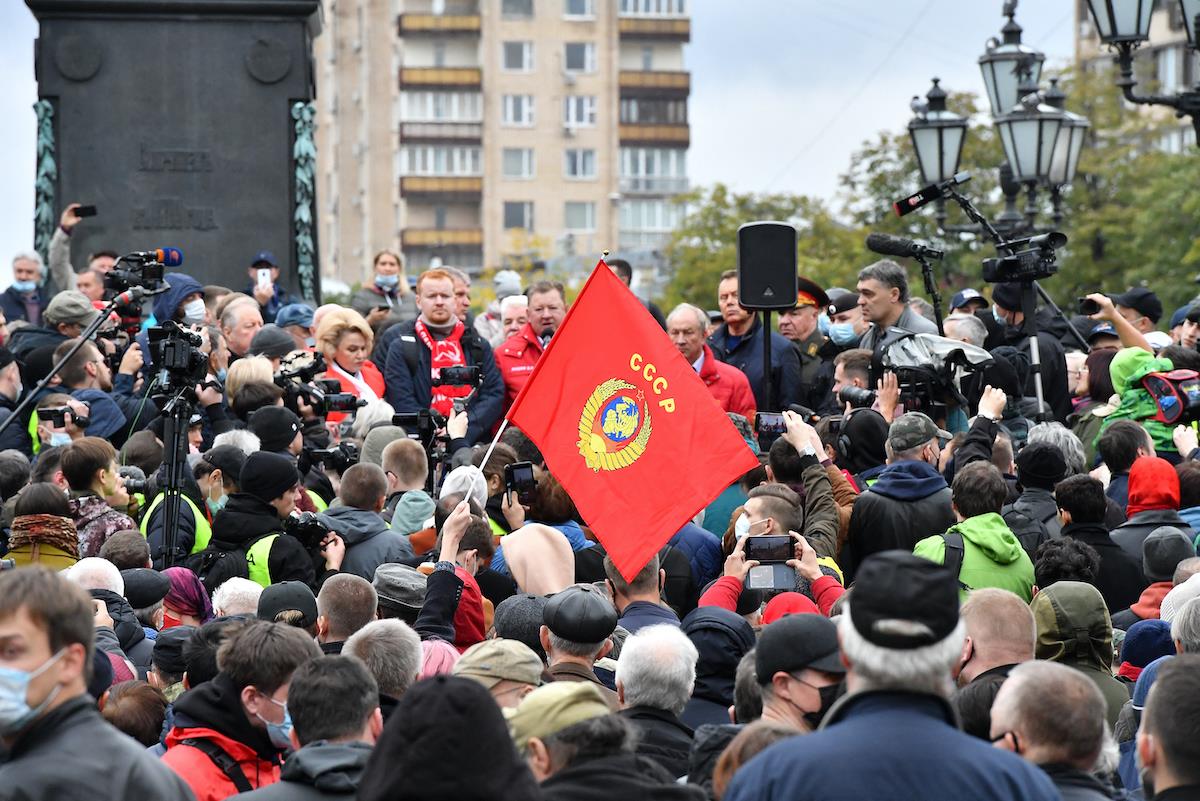(MENAFN- Asia Times) On the final day of the three-day Russian legislative elections on September 19, companies linked to a crony of President Vladimir Putin bussed and flew thousands of employees to Moscow.
Their bosses said they would attend a special“self-development” forum, but might also be called to attend a pro-Putin rally after the polls closed.
It soon turned out that the Kremlin would have no need for a fail-safe display of support. Once it became clear that Putin's United Russia party was going to obtain the electoral result Putin wanted – two-thirds of seats in the 450-member legislative Duma – the rally was canceled, reported the independent Moscow Times newspaper.
In the weeks since, stories have flowed about just how hard Putin's government worked to ensure the outcome long before voting day, and even after. State workers in Moscow were told to vote for United Russia. Independent media was muzzled. Videos of old-fashioned ballot stuffing appeared even as ballots were cast.
Authorities in St Petersburg tragic-comically registered two fake candidates, each of whom grew beards to make them look like an opposition candidate and changed their names to his, all to confuse voters.
A woman politician in the northern city of Murmansk was confined to a hospital for 20 days to keep her from running, on the grounds she had been infected with the coronavirus. She hadn't.
Russian physicist Sergei Shpilkin, a researcher into election data, estimated that the actual electoral report for United reached about 33% of votes cast, with a turnout at about 38%. Official results gave United Russia 50% of the votes with a 52% turnout. That amounted to 14 million fraudulent votes, Shpilkin asserted.
He based his analysis on evidently weird results – for instance, numbers from polling stations that recorded an unusually high turnout and big margins for United Russia.

Local election commission members count ballots at a polling station after the three-day parliamentary and local elections, in Kazan, Russia. Photo: AFP / Maksim Bogodvid / Sputnik
Golos, the Russian vote-monitoring group, said it received 5,000 complaints of bullying by employers demanding their staff vote for United Russia.“We have experienced a huge crackdown on any independent political life,” said Roman Udot, a Golos election monitor.
International criticism of the tactics was limited to common anodyne complaints about many repressive Putin policies. The US State Department noted that the Russian government had failed“to honor its international obligations to respect human rights and fundamental freedoms.”
The British Foreign Ministry also felt the election was“at odds with the international commitments.” The European Union pulled the expression“deep concerns” out of its tut-tut bag.
Western resignation probably reflects recognized reality. After all, Putin has sluffed off tougher criticism, as well as economic sanctions, over his 2014 invasion of Ukraine and subsequent annexation of Crimea.
That leaves change in the weakened hands of Russian pro-democracy activists. Within the space of just over a year, Putin has obliterated opposition to his regime. While some foreign commentators muse that his Duma win might motivate him to ease off, it's far from clear that Putin has any reason to.
For one thing, presidential elections are scheduled for 2024. Why let the opposition re-emerge only to have to shut them down later?
With Putin possibly approaching the sunset of his reign, maybe via bad health, the next generation of Kremlin power players – notably those in the secret services – might feel that it's safest to maintain tight control.
Popular dissatisfaction with the government is evident. Putin's approval ratings in polls are in the 35% range. History shows stop-and-go repression is not Putin's style.

Jailed Kremlin critic Alexei Navalny appears on screen via a video link from prison during a court hearing in the town of Petushki, some 120 kilometers from Moscow, on May 26, 2021. Photo: AFP / Dimitar Dilkoff
The current wave of tightening started in August 2020, when someone tried to kill Russia's leading opposition politician, Alexei Navalny. They slipped the nerve agent Novichok, which was developed by Russia's military, into his tea.
In 2018, Novichok was used by a pair of Russian intelligence agents to try to kill a defector in the United Kingdom. He survived. So did Navalny. He convalesced in Germany then returned to Moscow in January. Putin promptly threw him in jail.
Putin soon found big demonstrations calling for Navalny's release were getting in the way of a smooth runup to the legislative elections. Navalny's savvy online dissident organization, the Anti-Corruption Foundation, announced plans to offer candidates to run against Putin's party.
In April, a court suspended the foundation's operations, declaring it an extremist organization, which is the same designation given to the al-Qaeda international terrorist group.
A court then ruled that all symbols and financing of the organization be banned, that organizers of its activities could be imprisoned for up to 15 years and rank-and-file members were made vulnerable to six years imprisonment.
In June, Putin signed a law banning“extremists,” whatever that meant, from running for office. Navalny associates fled abroad in droves.
Putin also strong-armed both Apple and Google to eliminate so-called pro-Smart Voting apps from their online stores. The apps provided were designed by Navalny's team to instruct voters how to cast ballots for strong, non-United Russia candidates and thereby reduce the Kremlin party's victories.
Threats to the companies included possible persecution of employees in Russia.
The Duma vote is over, but the restrictions on internet operations are not. Last week, Russia's technology regulator threatened Facebook with fines of 10% of the company's annual Russian revenue if it failed to block“extremist” material from its site.
It will be interesting to see how they suppress news from a just-released international investigation about riches held off-shore by the wealthy. Long-time Putin associates are included.
Navalny backers in exile are keeping up a brave face. They aim to mobilize mass rallies inside Russia, like the ones that followed Navalny's arrest.
But Russians seem unwilling or even disinterested in risky sustained street protests like the so-called Color Revolutions that brought down Moscow-backed governments in Ukraine in 2004 and 2013.

People attend a Russian Communist Party rally against the results of the parliamentary election at Moscow's Pushkinskaya Square on September 25, 2021. Photo” AFP / Yuri Kadobnov
The Communist Party of the Russian Federation, which complained of fraud after winning 57 seats, organized a protest crowd of a few hundred in Moscow and that's been it.
Navalny backers also say they are researching ways to combat future voting fraud. As skillful as they are, the Kremlin has shown it is capable of staying steps ahead; a Navalny associate told me:“Putin has no trouble hiring Russia's best hackers and pay them well. There are plenty of them.”
Given Putin's long track record of tightening control over public opinion and elections, it seems unlikely that the assaults on leading opponents will end. The Duma vote was meant to show resistance is futile, even as he ages and his popularity possibly declines.
“Putin needs personal confirmation of his mandate and of the lack of alternatives to him. The election is another chance for him to convince himself that the people still support him,” said Tatiana Stanovaya, a political consultant.“And let the elite know that Putin is the only figure who can hold up the whole system.”
Elections are meant to ratify Putin's leadership, not serve as vehicles for political change. He has become“increasingly repressive” to create“the impression of an imaginary majority,” wrote Jussi Lassila, a researcher at the Finnish Institute of Foreign Affairs.
MENAFN04102021000159011032ID1102909928